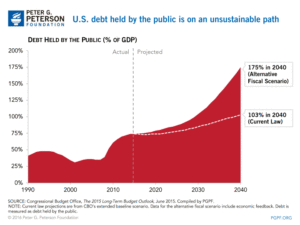Special to WorldTribune.com
Israel just celebrated its 68th birthday. Since President Harry Truman overrode the entire foreign policy community of his day, inside the government and outside, and recognized the new State of Israel, the United States has been Israel’s external sponsor of last resort.
There is nothing unusual in this — in 1948 and since, the U.S. has been by far the most powerful country in the Western World, and since the implosion of the Soviet Union in 1989-91, in the world. The U.S. also had by far the largest Jewish population of any country, following the Holocaust, and that segment of the population, then and since, exercises political and economic influence far beyond its numbers.
 The relationship has not been without ups and downs, and there is no point here in going into this well-known history. But no president since Truman has had a worse relationship with the Israeli government than Barack Obama, even though throughout his presidency, defense and intelligence cooperation has continued at a high level.
The relationship has not been without ups and downs, and there is no point here in going into this well-known history. But no president since Truman has had a worse relationship with the Israeli government than Barack Obama, even though throughout his presidency, defense and intelligence cooperation has continued at a high level.
Previously, periods of hostility were always followed quickly by restoration of the special relationship between the two countries. There is reason to believe that may not be the case in the future.
The national debt of the U.S. is monumental, due to the fiscal irresponsibility of the last two administrations.
It is mathematically impossible under any likely level of future growth to pay off this debt or even reduce it to proportions that would make the restoration of “normal” interest rates possible. Without that, credit growth for productive purposes, based not on central bank credit created out of thin air but rather the real savings of the American people and institutions, will not be possible, and thus growth will continue to stagnate at levels that not only will make debt reduction impossible, but that will ensure that it continues to grow.
To avoid the eventual necessity of either defaulting or inflating away the debt, future U.S. governments will have to cut expenditures or increase taxes, or both, in a massive way. And that, in turn, will subject aid to Israel to ever-greater pressure from an electorate that is being asked to receive less and give more to the government.
Although at present support for Israel continues to command a majority among the American people and their Congress, nothing can be taken for granted. None of the candidates for president in the November elections is a particularly strong supporter of Israel, and the first Jew to win a political primary in the U.S., Sen. Bernie Sanders, has just named three anti-Israel delegates to the Democratic Convention Platform Committee. Support for Israel in the American Jewish community is rapidly weakening.
Two-thirds of a century is a long time for a special relationship to last. No-one should be surprised if it is beginning to unravel.
The government and people of Israel should begin immediately preparing for a future in which such a relationship devolves into just another foreign policy partner or opponent, based on individual national interest.
As Winston Churchill was quoted as saying, “Countries have no permanent allies; they have only permanent interests”.
In the international ratings, Israel, small as it is, already ranks among the world’s leaders in both economic and military terms. It will soon have to live up to its potential in diplomatic terms as well.
Norman A. Bailey, Ph.D., is Adjunct Professor of Economic Statecraft at The Institute of World Politics, Washington, D.C., and a researcher at the Center for National Security Studies, University of Haifa. He was formerly with the U.S. National Security Council and the Office of the Director of National Intelligence.
